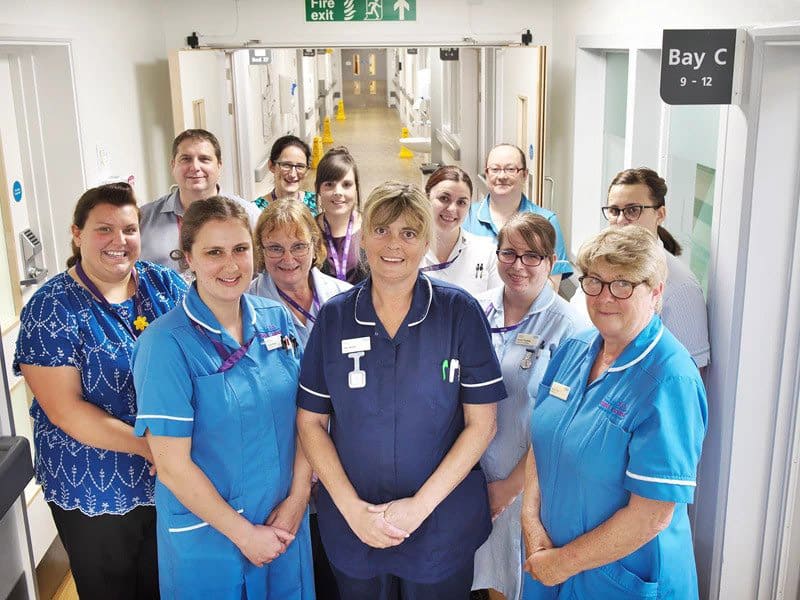Hospital introduces innovative digital monitoring tech to transform patient care

Beccles Hospital in Suffolk is transforming patient care with the introduction of a range of digital monitoring technologies from East Coast Community Healthcare (ECCH) CIC.
Beccles Hospital is an intermediate NHS care unit with in-patient facilities for those requiring medical care or therapy that does not require acute care in a general hospital. Patients can also access physiotherapy, occupational therapy, speech and language therapy, and other services at the hospital.
Staff at the hospital are now using a pioneering digital monitoring system with observations recorded using tablet devices, which helps to alert them when patients are deteriorating and links directly to patients’ GPs.
The social enterprise, which runs Beccles Hospital and provides community-based NHS healthcare services across Norfolk and Suffolk, is one of the first organisations in the area to implement the system.
It means ward staff can update a patient’s electronic record and make all the information instantly accessible to all clinicians looking after the patient, regardless of whether they are on site or working elsewhere. This integrated approach results in improved care plans for patients, produced in a timely manner.
Minsmere Ward at Beccles Hospital provides in-patient rehabilitation and reablement care, as well as housing six palliative care beds with specialist consultant support from St Elizabeth Hospice.
In addition to the new monitoring system, a ‘virtual’ discharge room has been introduced whereby ECCH teams meet online daily with staff from the James Paget Hospital and Norfolk and Suffolk County Councils to discuss patients who could leave hospital, and be cared for either on Minsmere Ward, or in the community by ECCH’s Primary Care Home teams. This has helped to ease flow through the hospital and enabled closer working with our partners.
Intermediate Care Lead at Beccles Hospital Lisa Ruthven said: “As technology has come to the forefront of everyone’s minds as a means of communication during the pandemic, we realised how much it could benefit our service in the long term and we have used this to the utmost to transform the way we do things. It has made a real difference to the way we communicate on the ward and, most importantly, the way we care for patients.”
The NHS has increasingly been using different types of virtual, assistive or remote monitoring technologies over the past few years, accelerating rapidly with the onset of COVID-19 and the need to clear record-breaking patient backlogs.
For example, the NHS is currently piloting a Parkinson’s smartwatch scheme, where doctors can remotely assess patients’ conditions. If successful, the project could be rolled out across England to around 120,000 people who have Parkinson’s.
Recently, Healthwatch England published a report looking at people’s experiences using digital technology to monitor their blood pressure at home. 63 percent of the participants preferred monitoring their blood pressure at home over going to the doctor’s for blood pressure readings. The report also explores improvements the NHS could make when giving patients technology to remotely monitor their condition.
Virtual hospital wards are also being utilised more frequently. Frimley Health NHS Foundation Trust and Berkshire Healthcare NHS Foundation Trust are providing acute hospital care in patients’ homes seven days a week via a virtual hospital ward expansion, which enables professionals to perform therapy assessments and prescribe relevant assistive technologies to patients quickly and efficiently.
Similarly, South West London Clinical Commissioning Group is using virtual wards to help patients recover in the comfort of their own homes. When patients have been discharged from hospital and are recovering at home, they can speak to clinicians virtually every day to ensure their needs are being met.

